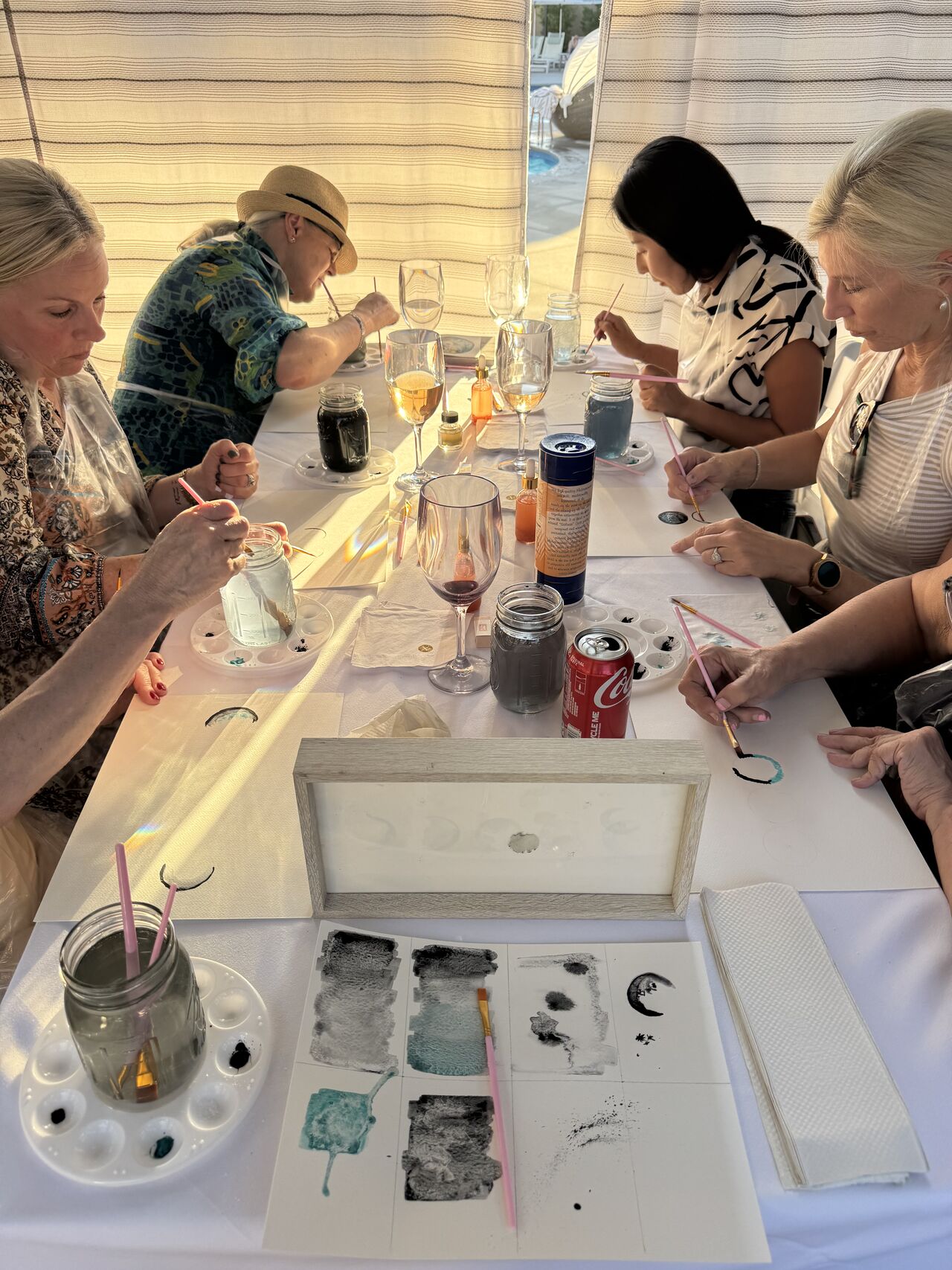We recently connected with Cheyenne Mosham and have shared our conversation below.
Cheyenne, thanks for joining us, excited to have you contributing your stories and insights. Was there an experience or lesson you learned at a previous job that’s benefited your career afterwards?
Honestly, one of the biggest lessons I’ve learned in my career is how important it is to just be present for your team. It took me a while to figure that out.
When I first stepped into leadership, I was so focused on deadlines, emails, and all the admin tasks that come with the job. I thought if I kept everything organized and moving, I was doing my part. The problem was, my team mostly saw me when something went wrong—if a guest complained, if standards weren’t met, or if I needed to discipline someone. From my side, I thought I was keeping things in order. From their side, it looked like I only showed up when there was an issue.
Over time I realized that it wasn’t building any trust. People need to see their leader not just as the person who corrects them, but as someone who notices the little things, celebrates wins, and understands what they’re going through day to day. So I started making a point to walk the floor, check in during pre-shifts, and just have normal conversations with my team, not always about work, but about them.
The difference was huge. People started opening more, bringing me ideas, even letting me know about issues before they blew up. And when I did have to correct something, it carried more weight, because it came from someone they trusted, not just “the boss.
So, the big takeaway for me is this: your inbox will always be full, but if your team only sees you when something’s wrong, you’re not leading—you’re just managing. Being present builds the kind of trust that makes everything else work better.

Cheyenne, love having you share your insights with us. Before we ask you more questions, maybe you can take a moment to introduce yourself to our readers who might have missed our earlier conversations?
Creativity has always been my passion in this industry, and being a trailblazer in the wellness world is what drives me. I’ve never wanted to just follow the trends—I want to set them. At my current property, I introduced oncology-adapted treatments, making us the first spa in Southern California to offer this level of care and inclusivity.
Earlier in my career, I partnered with Natura Bissé at Pelican Hill to bring their Pure Air Bubble activation to the resort—the first hotel in Southern California to do so. We didn’t just host it—we elevated it by taking the bubble out on the green, giving guests an unforgettable experience with the best view on one of the region’s most beautiful golf courses.
For me, wellness is about innovation, creativity, and impact. I take pride in creating one-of-a-kind experiences that not only surprise and delight guests but also move the industry forward.
Let’s talk about resilience next – do you have a story you can share with us?
One story that really illustrates my resilience comes from the height of COVID. Like so many in hospitality, our spa operations were turned upside down overnight. I went from leading a team of 25 to having only 3 people left. But I knew two things: our spa members still relied on us for their wellness—both for medical and leisure reasons—and my team needed opportunities to work.
At the time, outdoor personal services were one of the few things approved. So instead of giving up, we got creative. We transformed the cabanas at The Ritz-Carlton, Marina del Rey into what we called a “Caribbean getaway.” We set them up as makeshift massage suites, creating a safe, comfortable, and even fun environment where guests could continue their wellness routines outdoors.
It wasn’t glamorous, but it worked. We generated enough revenue to keep a few more team members employed, and more importantly, we gave our members a sense of normalcy and care during a very uncertain time. Looking back, it taught me that resilience isn’t just about surviving challenges—it’s about finding creative ways to turn them into opportunities.
Learning and unlearning are both critical parts of growth – can you share a story of a time when you had to unlearn a lesson?
A big lesson I had to unlearn was the idea that having a title automatically made me a good leader. Early in my career, I thought being “the boss” meant people would naturally follow me, respect me, and perform at their best. I quickly found out that wasn’t the case.
The backstory is that I stepped into leadership young, and I leaned on the authority of my position instead of the trust of my team. I was focused on proving myself, hitting goals, and making sure everything looked perfect on paper. But what I didn’t realize at first was that my team wasn’t inspired by my title—they wanted to feel supported, understood, and valued.
Over time, I had to learn humility. Leadership isn’t about getting people to work for you—it’s about getting them to work with you. That shift in mindset changed everything. Once I stopped leading with my title and started leading with empathy, coaching, and collaboration, I saw my team open up, become more engaged, and perform at a whole new level.
Contact Info:


